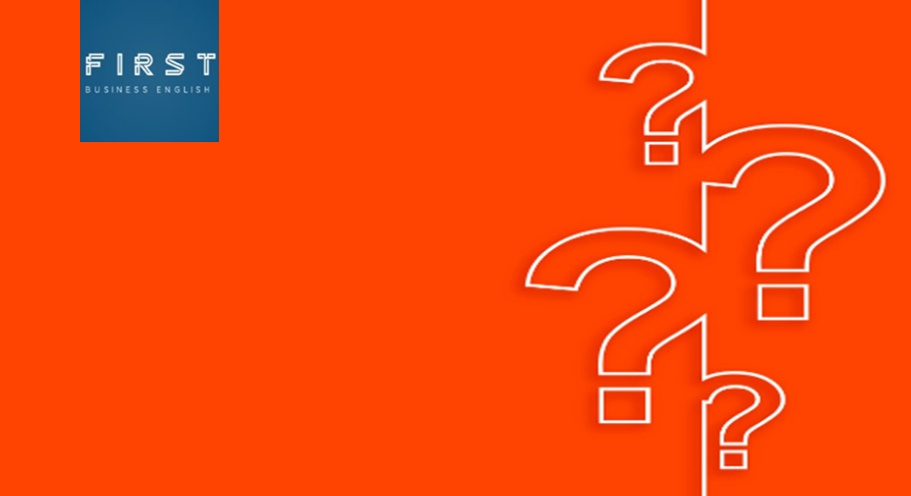
Direct And Indirect Questions In Business
- Posted by Ryan Anthony
- Categories B1-B2 Lesson Blog, Blog
- Date April 10, 2025
First Business English know that in business communication, it’s important to ask questions in a polite and professional way. This is especially true in meetings, interviews, or when speaking with clients or senior colleagues. One key way to sound more polite is by using indirect questions instead of direct ones. In this First Business English article we determine what are direct and indirect questions and how to use them in a business context. We also provide an example paragraph to help you get started asking the right types of questions within your own organization.
What Are Direct Questions?
Direct Questions are the typical questions we use in everyday conversation. They usually follow this structure:
Question Word + auxiliary verb + subject + main verb
Examples:
-
“Where is the meeting room?”
-
“What time does the presentation start?”
-
“Did you finish the report?”
Direct questions are short and clear. However, in formal or professional situations, they may sound too direct or even rude.
What Are Indirect Questions?
Indirect Questions are more polite and formal. They are often used:
-
when speaking to someone you don’t know well
-
in emails
-
in meetings or interviews
-
when making a request
They often begin with phrases like:
-
“Could you tell me…”
-
“Do you know…”
-
“Would you mind telling me…”
-
“I was wondering…”
Structure: Indirect phrase + subject + verb (no inversion and no question mark in statements)
Examples:
-
Direct: “Where is the meeting room?”
Indirect: “Could you tell me where the meeting room is?” -
Direct: “When does the event begin?”
Indirect: “Do you know when the event begins?”
Notice: In indirect questions, we don’t use the auxiliary verb “do/does/did,” and we don’t invert the subject and verb.
Business Context Examples
Here are some examples of direct and indirect questions used in business situations:
| Direct Question | Indirect Question |
|---|---|
| “What’s your position here?” | “Can I ask what your position is here?” |
| “When is the deadline?” | “Do you know when the deadline is?” |
| “How much does the product cost?” | “Would you mind telling me how much the product costs?” |
Common Phrases
-
“I was wondering if you could help me with this.”
-
“Could you let me know when the documents will be ready?”
-
“Do you know who is responsible for this task?”
-
“Would it be possible to find out the cost of shipping?”
-
“Can you tell me what the next steps are?”
Example Paragraph
During a team meeting, James wanted to ask his manager about the progress of a new project. Instead of saying, “When will the project be finished?”, he said, “I was wondering if you could tell me when the project will be finished.” His manager appreciated the polite tone and gave him a detailed update. Using indirect questions helped James communicate clearly and respectfully, which improved team communication.
Conclusion
-
Use direct questions for informal or urgent conversations.
-
Use indirect questions to sound polite and professional.
-
Pay attention to grammar: no auxiliary verbs or word order changes in the question clause.
About First Business English
First Business English is a premium business English language online education center that provides individuals and groups the opportunity to learn Business English that enhances their careers and lives through a structured Business English curriculum. Contact Us
Ryan Anthony is an enthusiastic, self-motivated, reliable Online Business English language tutor who is learner focused and highly adaptable. Bachelor of Business Studies Degree educated with extensive IT Support, Call Centre Management, Retail Management and English Language Teaching experience.
You may also like

The Pros And Cons Of Freelancing As A Career

The Effect Of Prices And The Cost Of Living

